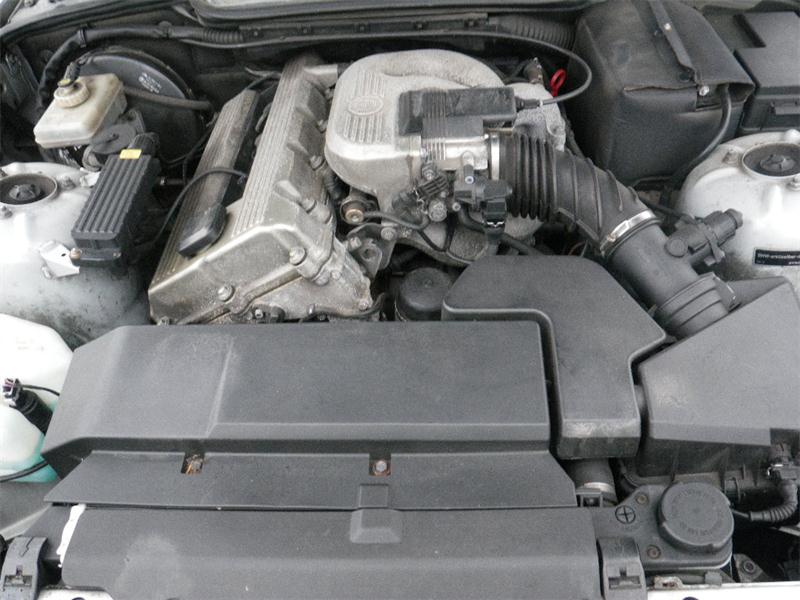BMW 318ti Review: What Makes This Version Attract Attention
BMW 318ti Review: What Makes This Version Attract Attention
Blog Article
Vital Factors To Consider for Selecting the very best Engine for Your Requirements
In the realm of picking the optimal engine to meet your demands, several vital elements need meticulous factor to consider to guarantee optimum performance and effectiveness. From the nuanced balance in between power and performance to the often-overlooked elements of maintenance and service needs, each aspect plays a crucial function in determining one of the most suitable engine for your particular requirements. As the intricacy of engine technologies remains to progress, critical one of the most suitable choice necessitates a deep understanding of the interplay in between various considerations. By exploring the detailed web of variables that underpin this decision-making procedure, a more clear path emerges in the direction of selecting an engine that not just meets yet surpasses your expectations.
Power and Efficiency
When assessing engines for optimal efficiency, it is crucial to focus on both power outcome and efficiency. Power output determines the capability of an engine to create power, which directly affects its performance. A high power result is important for demanding tasks such as sturdy applications or high-speed needs. It makes certain that the engine can manage the work efficiently and successfully. Nevertheless, power alone is not adequate; effectiveness plays a considerable function in identifying the total performance of an engine. Performance describes how well the engine converts fuel into functional power. A more effective engine will certainly deliver much better gas mileage, lower discharges, and lowered operating expense. Striking the appropriate equilibrium between power output and efficiency is essential to picking an engine that satisfies your specific needs. It is important to think about factors such as the meant usage of the engine, ecological influence, and long-lasting price effects when making this decision. By very carefully examining both power and efficiency, you can select an engine that delivers optimum performance and fulfills your needs efficiently.
Gas Performance and Economic Situation
Fuel performance refers to the engine's ability to transform gas into power with marginal waste, directly impacting operating costs and ecological sustainability. Engines with higher gas performance not just decrease gas costs however additionally decrease carbon exhausts, contributing to a greener procedure.

Compatibility and Application
Thinking about the gas effectiveness and economic situation of an engine, the next important facet to address is its compatibility and application within specific functional contexts. Compatibility refers to just how well the engine integrates with the general system or equipment it powers. It involves elements such as physical measurements, placing options, electric user interfaces, and control systems. Ensuring compatibility is essential to avoid problems such as overheating, resonances, or power discrepancies (bmw 318ti).
In addition, the application of the engine is equally essential. Different engines are created for details purposes, whether it be commercial machinery, aquatic vessels, autos, or power generators. Comprehending the intended application enables the choice of an engine that can supply the needed power result, torque, and functional qualities. As an example, a high-revving engine developed for performance vehicles would not appropriate for durable building tools that requires high torque at reduced speeds.
Upkeep and Service Requirements
Maintenance and service needs play an important function in ensuring the longevity and optimum efficiency of an engine. Routine maintenance is necessary to stop breakdowns, expand the life expectancy of the engine, and maintain its efficiency. When picking an engine, it is necessary to take into consideration the producer's suggested upkeep schedule and the accessibility of solution centers or qualified professionals.
Elements such as the regularity of oil modifications, filter substitutes, and total evaluations can significantly impact the engine's performance. Some engines might need even more regular servicing based on their style and use, while others may have longer intervals between upkeep checks. It is important to stick to these service demands to stay clear of expensive repair services and unexpected downtime.

Price and Budget Plan Considerations
Spending plan constraints typically play a considerable role in the decision-making process when choosing an engine check my site for a certain application. When taking into consideration the price and budget effects of picking an engine, it is important to evaluate not only the initial acquisition cost but additionally the long-term expenses connected with maintenance, gas usage, and prospective upgrades or repair work. It is critical to strike a balance between the upfront cost of the engine and its general lifecycle costs to make certain that the selected engine remains financially lasting throughout its functional life-span.
Aspects such as gas efficiency, reliability, and longevity can straight influence the overall expense of possession of go to my blog an engine. While a more pricey engine may have greater ahead of time expenses, it might potentially result in lower upkeep and gas expenditures over time, hence offering better value in the lengthy run.
Conclusion

Gas effectiveness refers to the engine's capability to convert gas into power with very little waste, directly affecting operating costs and environmental sustainability.Factors affecting gas effectiveness consist of engine layout, burning performance, and overall performance optimization. Furthermore, selecting the suitable gas kind and quality as suggested by the engine manufacturer can further improve effectiveness and extend engine life expectancy.
Engines with good use attributes and easily available components can lower maintenance expenses and lessen the time the engine is out of procedure - bmw 318ti. It is crucial article to strike a balance in between the upfront cost of the engine and its overall lifecycle costs to guarantee that the picked engine remains financially lasting throughout its operational life expectancy
Report this page